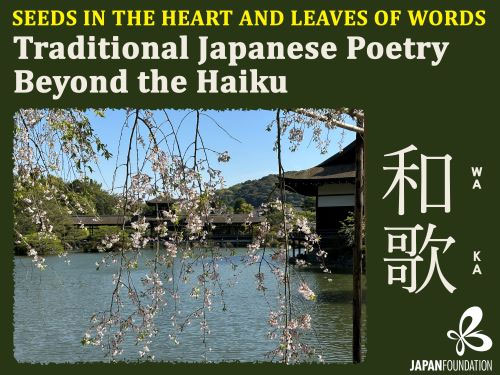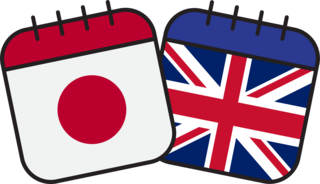
Seeds in the Heart and Leaves of Words: Traditional Japanese Poetry Beyond the Haiku
- 7 Decembre 2023
- 6.30pm
- Japan House London, 101-111 Kensington High St, London W8 5SA London W8 5SA
- https://www.jpf.org.uk/whatson.php#1306
- 020 7492 6570
- events.japanese@jpf.go.jp
- Tweet
About this Event
Poetry has been a part of Japanese life for more than a millennium, with the first major anthology of waka - poems in Japanese - compiled in the late eighth century. Later, it was to become an essential part of life for the aristocrats of the new capital city of Heian-kyō - modern Kyoto - and through their production and patronage exert a profound influence on almost all aspects of Japan’s cultural life, as warlords, warriors and merchants sought the social status and approval that came with the composition of poetry. Images from waka were used in painting, on clothing, and utensils of various kinds. Waka topics influenced which plants and animals were cherished, and which were not and subtly shaped Japan’s ideas of itself as a nation and people. Indeed, the influence of waka has been so pervasive and enduring that it’s possible to say without an understanding of waka, you don’t really understand Japan.
This lecture will trace the development of waka from its early beginnings as a tool for communication and social relationships among the elite nobility, through its role in providing a ritual underpinning to the aristocratic state, and its development into an arena of critical and literary conflict between factions determined to maintain and promote their views of appropriate poetic style, leading eventually to the development of new poetic form such as the haiku. It will reveal how and why waka thrived, and how its topics and the emotions associated with them came to express many of the attitudes which are considered quintessentially Japanese.
About the Speaker
Dr Thomas McAuley is a Senior Lecturer in Japanese Studies at the University of Sheffield, and an expert on premodern Japanese poetry and culture. Among his publications is the complete translation and commentary of Roppyakuban uta’awase (‘Poetry Contest in Six Hundred Rounds’; 1193-94), one of the most significant poetic and critical texts of the period.
An experienced translator, he regularly posts new translations of premodern Japanese poetry on his website, www.wakapoetry.net.
Among his current projects are studies of premodern critics’ attitudes to the inclusion of Chinese-influenced material in waka poetry and the impact of poets’ gender on their compositional practice.
